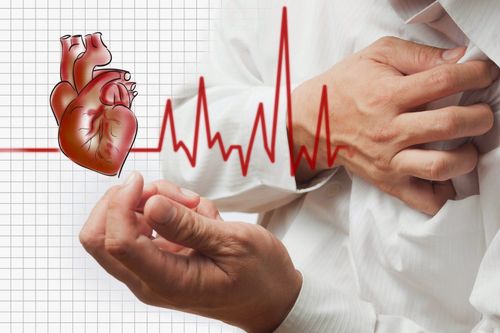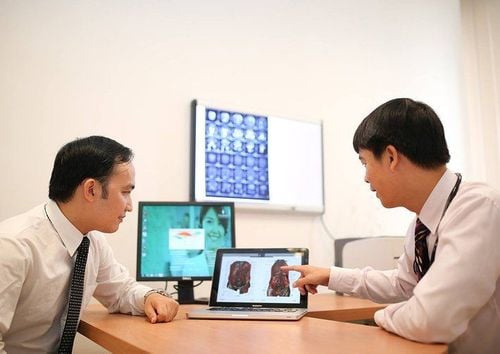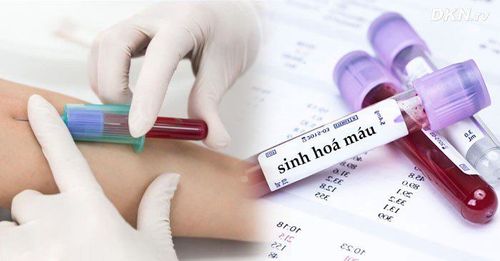This is an automatically translated article.
The article was professionally consulted by Specialist Doctor II Ho Viet Le Diem - General Internal Medicine - Department of Examination & Internal Medicine - Vinmec Central Park International General Hospital.History of heart disease is an important history to take during a physical exam. The cardiovascular system has always played a central role in regulating the life of the whole body. For patients from middle age or with cardiovascular risks, the examination can detect the disease at the latent stage.
1. What is the history of heart disease during the physical examination?
The information surrounding the reason for the patient's visit is called the medical history, and the medically related information about the patient, family members, people living nearby and the environment is called history. Accordingly, taking the medical history and history is an important stage in the medical examination and treatment process. This provides practical suggestions in the doctor's orientation and reasoning process to help save the patient. The cardiovascular system plays a role in circulating blood throughout the body. Therefore, problems on the cardiovascular system will be directly related to overall health. Therefore, for people with a history of heart disease, doctors need to carefully exploit as well as perform a cardiovascular examination, which serves as the basis for accurate diagnosis and appropriate care for each patient. during a general health check-up. Moreover, if it is not in urgent situations, taking the initial time to take a thorough history is also an opportunity to help patients openly and frankly express their discomforts.The history of heart disease during the general physical examination will be emphasized in subjects from about 40 years of age for men and 50 years for women. This is the timeline when cardiovascular risk factors gradually reveal themselves such as hypertension, diabetes, dyslipidemia... In which, the doctor will focus on asking about the common functional symptoms of diabetes. cardiovascular disease such as chest pain or other symptoms. At this point, the patient will be asked to describe the pain with characteristics of location, direction, onset, or other accompanying signs such as nausea, vomiting, shortness of breath, dizziness, fainting , tachycardia, irregular heartbeat...
At the same time, previous medical records should also be reviewed, tests done such as cholesterol level, blood pressure measurement, weight, exercise habits exercise, smoking, work and other psychological stress in life. Also, family medical history should be noted. In cases where a person has one or more family members with early coronary artery disease and inherited heart diseases, these conditions should be taken into account in planning screening.

Những hồ sơ thăm khám trước đây cũng cần được xem xét
2. What is the meaning of taking a history of heart disease during a general physical examination?
Cardiovascular disease does not always have symptoms, if people with cardiovascular disease go to medical facilities, the disease is already in a severe stage. At this point, the prognosis for treatment may become less favorable. On the contrary, if everyone gets a general check-up, and the doctor finds symptoms early by examining or doing tests, the patient will soon receive the necessary attention, care and treatment. This is the meaning of a periodical medical examination, which will be based on a thorough exploration of the clinical history of the heart disease history, of the patients themselves and their loved ones.After taking a detailed and clear history, the physical examination step and ordering tests and treatment will be better oriented and monitored. If the patient has a history of hereditary heart disease in the immediate family, other members also need to be planned for screening, not subjectively to prevent unfortunate events that may repeat.
3. What information should be gathered in taking heart disease history?
Administrative information and contact information:Full name, age, gender Occupation – Economic condition Educational status Marital status Current address Physical status:
Current signs and symptoms The symptoms are felt and described by the patient in detail, such as angina, palpitations or signs of high blood pressure.
Information on medications, allergies, lifestyle and habits like smoking, alcohol
Personal history:
Previous medical history: Myocardial infarction, atrial fibrillation, peripheral vascular disease, hypertension pressure, hyperlipidemia, rheumatism and other medical conditions that are associated with heart disease such as hyperthyroidism, diabetes mellitus.
Surgery or hospital admissions, including obstetrics.
Drugs used or being used:
Cardiovascular drugs: Beta blockers, calcium channel blockers, ACE inhibitors, diuretics, statins, antiplatelets, anticoagulants, nitrates... Contraceptives - increased risk have thromboembolic disease Over-the-counter drugs such as NSAIDS or aspirin Herb Immunization regimen
Family history:
Relatives had cardiovascular disease at a young age: myocardial infarction, hypertension, stroke, thrombosis Yes Early relative death: determine age and cause of death Have any unexplained deaths in young relatives, suspected hereditary heart disease such as long QT syndrome, cardiomyopathy
4. Periodic general health check-up at Vinmec

Hệ thống Bệnh viện Đa khoa Quốc tế Vinmec triển khai các gói khám sức khỏe tổng quát và thực hiện các xét nghiệm cận lâm sàng phù hợp với từng đối tượng
By proactively going for a general health check-up right before there are any abnormal signs, through visiting, examining and performing screening tests, doctors can help identify the early warning signs. Especially cardiovascular diseases, when detected at an early stage, treatment can be more effective, more successful and proactive in preventing events for the patient.
Vinmec International General Hospital system deploys general health checkup packages and performs paraclinical tests suitable for each subject. Customers will be directly taken by the doctor to take personal and family medical history, measure blood pressure, body mass index, physical examination, perform screening tests as well as advice in each situation.
With a team of professional, highly qualified and experienced doctors, modern facilities, advanced testing machinery system, the periodic health check-up at Vinmec deserves to be an address. Reliable, world-class quality medical care for everyone and every family.
Doctor Ho Viet Le Diem has more than 10 years working in the Department of Resuscitation - Cardiac Surgery at Cho Ruong Hospital with the position of cardiologist and Open Heart Resuscitation. And has more than 03 years as a General Internal Medicine doctor at Family Medical Practice in Ho Chi Minh City. Currently, Dr. Diem is working at the Internal Medicine Department - Vinmec Central Park International General Hospital.
Please dial HOTLINE for more information or register for an appointment HERE. Download MyVinmec app to make appointments faster and to manage your bookings easily.
SEE MOREHealth Checkup Package Children General Health Checkup Package Standard Comprehensive Health Checkup Package













